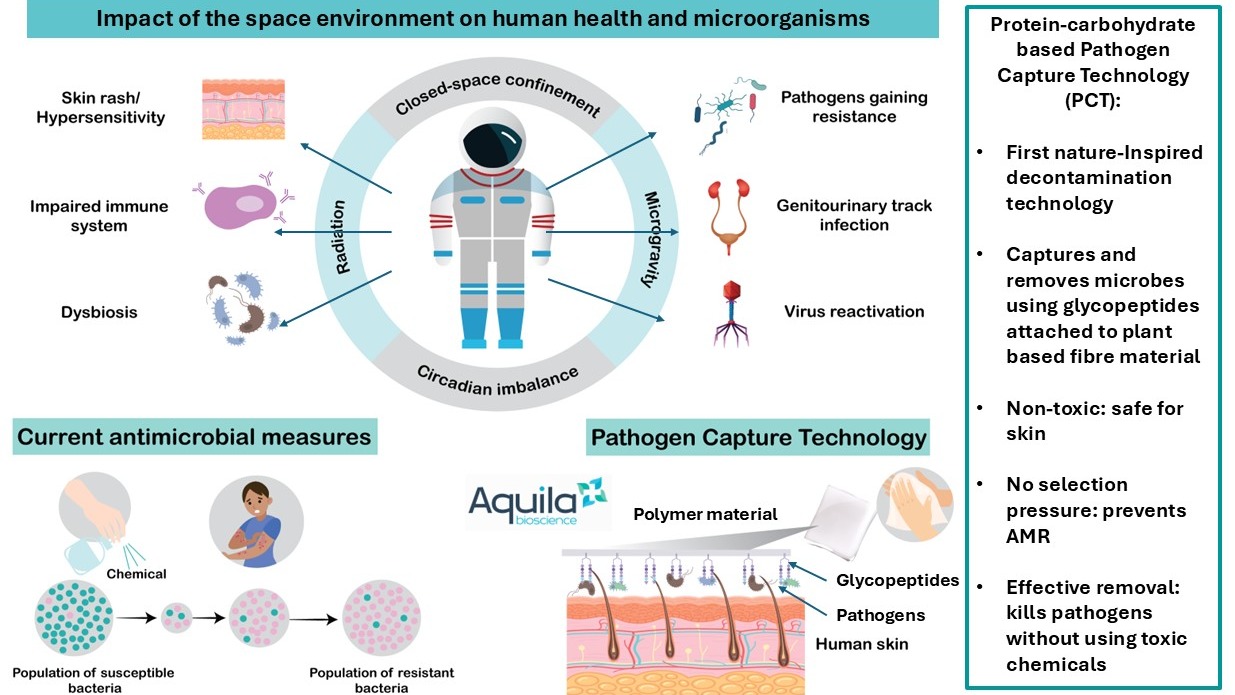Humans are constantly exposed to pathogens, and the unique conditions of space flight increase susceptibility to infectious diseases by altering human and microbial physiology. Current antimicrobial measures, such as biocides, silver, iodine, ozone, and electrochemical methods, have benefits and drawbacks, often leading to pathogen mutations, sterilization tolerance, and potential antimicrobial resistance (AMR). Therefore, there is a critical need for safer and more effective decontamination measures that are non-toxic and stable over long periods in space. Traditional decontamination agents like alcohol, bleach, peroxides, and ammonium compounds are unsuitable for skin use due to their harshness and potential toxicity. Aquila Bioscience’s nature-inspired Pathogen Capturing Technology (PCT) addresses this gap with a non-toxic, biodegradable solution for pathogen decontamination of both physical and biological surfaces. PCT uses glycosylated materials with protein-carbohydrate ligands to capture and remove pathogens without harming the skin. This technology needs adaptation for surface and skin decontamination in space missions, using biodegradable cellulosic material to address payload weight and waste constraints—two critical issues in space exploration. We reviewed ISS microbiome literature to identify target pathogens relevant to space missions, nominating microorganisms known to pose health risks in confined space environments. These pathogens may include bacteria such as Staphylococcus aureus, Escherichia coli, Pantoea conspicua, Pantoea gaviniae, and Klebsiella pneumoniae; fungi like Aspergillus fumigatus and Rhodotorula mucilaginosa; and viruses such as adenoviruses and norovirus. Implementing PCT could significantly enhance health and safety protocols in space missions, offering a reliable alternative to traditional antimicrobials and contributing to sustainable and responsible space exploration.

